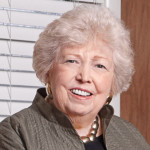Daytona, Florida
Diagnosed with Hep C in 1997
I had never heard of hepatitis C until a letter arrived following a blood donation attempt. It advised me to seek medical consultation and in 1998, I went to a gastroenterologist. Interferon therapy was unchartered waters; I was sent home with a syringe and a vial.
My husband was working out of state and I was caring for three kids. With two households to support, there was no other choice but to continue to work. I couldn’t comprehend how I had come to this. I wasn’t a saint, but my lifestyle didn’t fit with this diagnosis. Now I was in a locked bathroom, needle in hand, telling the kids, “Hold on. Mom will be out in a minute!” It seemed so surreal and final. No one counseled or called me, and every mother and baby I saw in public had me bursting into tears. The effects of interferon were horrid and I am not sure how I went the full course, but I completed treatment. It looked like my count was zero, but it wasn’t. My follow-up appointment was a blur. I vaguely recall the doctor with my file, telling me the virus had been detected. He closed my file and said, “Sorry.”
I did as we all do and put it on the shelf. The years went by and the kids went off to college. They married and we were awed by the births of grandchildren. It seemed that every “goal” I had set was being fulfilled, and soon we would retire. I could live with hepatitis C’s fatigue and aches.
When my husband was 65, we made a five-year plan for him to finish his job and pay off the house. He also had hep C, discovered during a visit to the Veterans Administration six years earlier. He had seen the effects of interferon after my treatments and knew it had not worked.
On September 17, 2014, my husband went to the emergency room with complaints from a prior bowel resection. They found a mass on his liver; it was hepatocellular carcinoma. He was transferred to Shands Hospital, but was eliminated as a transplant candidate as the cancer was too advanced. Nexavar (sorafenib) was prescribed, and the prognosis was at most a year. Our youngest child dropped out of her PhD program to come home; the oldest began plans to move home. Our son, the middle child, was devastated. He reviewed my husband’s scans from a hernia surgery 14 months prior, and there was no indication then. It was a beast of a cancer and our lives would see what hepatitis C can do.
Within days, his kidneys failed and we went to the ICU. A week later, he was transferred to hospice. I was stunned. No, I was devastated. He died three weeks after his diagnosis.
I had made an appointment to follow up on my hep C, only to cancel with each downward step his condition took. My insurance had been covered by his employment and I lost that for the remainder of the year.
We all know the virus does not discriminate, but society does. People profile the victims of this disease (until a close family member is confirmed). Even medical professionals can offend with their assumptions. When my husband’s ammonia levels were toxic and we were seeing him slide into senselessness, the ICU nurse asked my daughter, “When was the last time he had a drink? He is in withdrawal.” My husband was not a drinker. He may have been infected via possible contaminated practices relating to his Marine Corp service. My siblings and I have not resided or lived in common companionship since I was in grade school. We were raised in a retired officer’s household that expected and got law-abiding kids.
For the past two months, I have prepared to end this nearly two decades of fear and denial. It has been very tough these days; the emotional stress seems unbearable at times. I had put a lot of faith in the “system.” My doctor has checked out my every nook and cranny, and performed a liver biopsy. It has taken months and thousands to get to the point of treatment action. Yesterday my insurance company denied me. I am not sick enough, although my viral count is sky-high, my METAVIR score (a measure of liver damage) was not high enough. I can’t get the hep C medications even though I am struggling to get through daily work. I do not have hepatocellular carcinoma.
I do not have to tell anyone here how devastating these rejections are. How inhumane they make us as a nation appear. The kids have been through hell watching their father die. They know hep C will end my life despite the availability of a cure. It is not only devastating as a family but also capitalistically. It is a system that fails all but those who have the money.
What three adjectives best describe you?
Scared, broken, hopeful
What is your greatest achievement?
My marriage and children
What is your greatest regret?
Not having the time to say many things to my husband before he died
What keeps you up at night?
All of it!
If you could change one thing about living with viral hepatitis, what would it be?
The tiredness and its effect on my job
What is the best advice you ever received?
Life is quite simple; let it be.
What person in the viral hepatitis community do you most admire?
My late husband
What drives you to do what you do?
Purpose. There are still things to complete, grandkids to share with, and a new phase of life.
What is your motto?
Don’t sit too long on the pity pot.
If you had to evacuate your house immediately, what is the one thing you would grab on the way out?
Photo albums
If you could be any animal, what would you be? And why?
A giraffe; they have great views.

Donna Shields






Comments
Comments